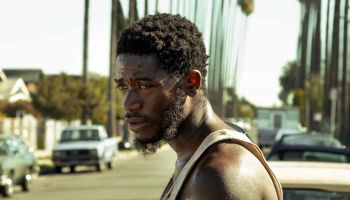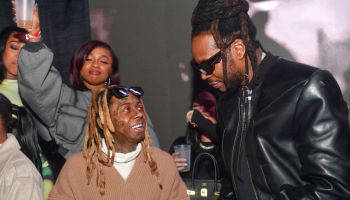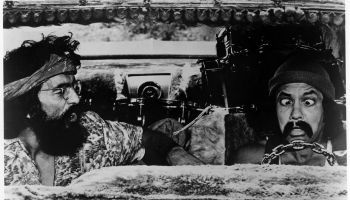This month (February 7th) marked the sixteenth annual observance of National Black HIV/AIDS Awareness Day (NBHAAD). HIV/AIDS, once considered a “gay white man” disease, is still consistently on the rise in black American communities across the US. The Centers of Disease Control and Prevention (CDC) reports “of all racial/ethnic groups in the US, blacks have the highest HIV burden and higher proportions of new infections and deaths.” Although improvements in HIV treatment over the last 30 years have transformed HIV/AIDS from a death sentence to a manageable, chronic condition, a troubling trend is emerging: HIV criminalization.
Currently, 33 states and two territories have laws criminalizing HIV. HIV criminalization has often resulted in gross human rights violations, including harsh sentencing for behaviors that pose little or no risk of HIV transmission, including: A man with HIV in Texas who is now serving 35 years for spitting at a police officer; A man with HIV in Iowa, who had an undetectable viral load, was sentenced to 25 years after a one-time sexual encounter during which he used a condom; And a man with HIV in Michigan who was charged under the state’s anti-terrorism statute with possession of a “biological weapon,” after an altercation with a neighbor.
In none of the cases cited was HIV transmitted. Actual HIV transmission—or even the intent to infect—is rarely a factor in HIV criminalization cases.
With states encouraging criminalization, HIV has increasingly become a new prison pipeline for young black males. Recently the headlines have been plastered with sensationalized stories about a 22-year old college student, a preacher and a policeman, all living with HIV and charged for not disclosing their status to sexual partners. In many states this carries a felony charge and sex offender status.
In these cases, remember these were all consensual partners who had a choice. If these consensual partners didn’t know their status but had sex with these same people they would not face charges. Why hasn’t the burden to protect oneself also been placed on casual and consensual sex partners? What messages are we sending to people, particularly our young people about personal responsibility? What is the impact on black communities when despite the absence of transmission felony prison time can still result from engaging in casual sex and not sharing ones HIV status? Taking antiretroviral medication having an undetectable viral load and wearing condoms are not defenses in court.
Young black males seem to be the target of everything that is wrong with America and suffer the worst consequences. The HIV disparity among blacks adds to a crowded field of social and health disparities including a growing incarceration disparity. According to the NAACP Criminal Justice Fact Sheet; African Americans are incarcerated nearly six times more than whites. By 2001, 1 in 6 black men had been incarcerated. If this trend continues, one in three black males will be imprisoned during his lifetime. Notably, the CDC also projects nearly one in three Black gay men are HIV-positive. Young black men have the highest rate of HIV infection and even after 30 years this rate continues to increase.
Now when help is needed to stop a health epidemic in the black community they are again demonized. Unfortunately, the demonizing happens both internally and externally, making progress even less likely because sending more black men to prison will not stop HIV. Furthermore, it won’t absolve public health professionals, community leaders or our criminal justice system of its responsibilities to provide scientifically-proven and culturally-appropriate effective methods to stop the spread of this disease in Black communities. There simply is no shield of justice big enough to do this job.
It is no longer acceptable to sit by and watch our communities implode. It is time for a paradigm shift on how we discuss HIV in black communities and all communities — including personal responsibility, explaining more explicitly how HIV is and is not transmitted . HIV is a preventable disease and no longer a death sentence. This needs to be understood by all.
In observance of National Black HIV/AIDS Awareness Day and all that black boys and men are facing –we call on you — politicians, community leaders, faith leaders, bloggers, pontificators, parents, aunts, uncles, brothers and sisters to make a year-long commitment to talk about sexual health with our young people. We cannot afford to wait for others to save us. We must take matters into our own hands to educate our communities. We must tell our local and federal officials that we will not stand by idly while our children are demonized by stigmatizing laws and HIV prevention funding is disappearing from our communities.
Lisa Fager Bediako independently consults on civic and public health issues through Free Mind Communications, and is a member of the Center for HIV Law and Policy’s – Positive Justice Project, a national alliance working to end HIV criminalization in the US.
Michael Hinson is the Director of Policy and Programs for the Center for Black Equity in Washington, DC and directs its Act Against AIDS Leadership Initiative Project. He also serves as an adjunct professor in the Master of Public Administration Program at Cheyney University.















